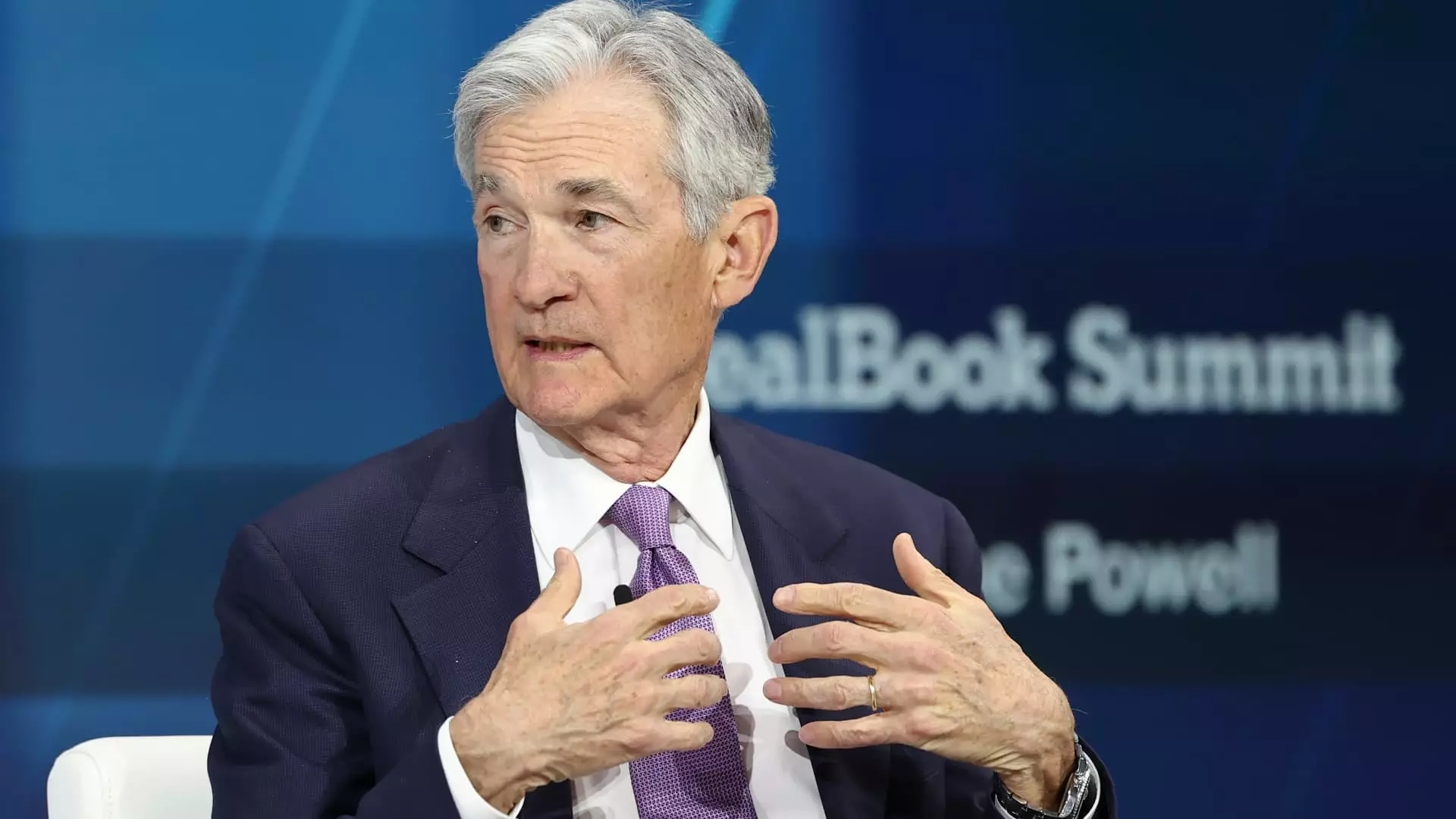In recent times, the landscape of finance has experienced a seismic shift, notably marked by the rise of cryptocurrencies like Bitcoin. At the heart of this transformation lie influential figures such as Federal Reserve Chair Jerome Powell. His comments regarding Bitcoin have sometimes been perceived as catalyst events, reshaping public and institutional sentiment towards digital currencies. What’s particularly intriguing is the duality of Powell’s statements: while he downplays Bitcoin’s viability as a currency, he lends it a certain gravitas by likening it to gold—a traditional store of value. This article delves into the implications of such statements and the broader context of cryptocurrency’s evolving role in the financial ecosystem.
During a recent CNBC interview, Powell characterized Bitcoin not as a threat to the stability of fiat currencies but as a competitor to gold. He attempted to delineate its role within financial markets by emphasizing that “people use Bitcoin as a speculative asset.” This analysis bears significant weight, as it highlights the reality that many investors perceive Bitcoin primarily as a speculative tool rather than a reliable medium for day-to-day transactions or a stable store of value. The implication is clear: Bitcoin’s appeal lies within its volatility and potential for significant returns, akin to how investors traditionally engage with gold.
Moreover, Powell’s acknowledgment that Bitcoin lacks the intrinsic properties necessary for it to pose a challenge to the U.S. dollar is crucial. However, by aligning Bitcoin with gold, he inadvertently elevates its standing in the eyes of investors who are already wary of inflation and consider alternative assets to hedge their portfolios. This comparison not only legitimizes Bitcoin’s role but also highlights its potential to contribute meaningfully to a diverse investment strategy.
The immediate aftermath of Powell’s remarks saw Bitcoin’s price surge by 4%, crossing significant thresholds that were previously deemed unattainable. Such reactions from the market reveal a phenomenon where seemingly benign comments from powerful economic figures can influence market dynamics dramatically. Analysts like Joel Kruger have posited that these comparisons may render Bitcoin more respectable, thereby attracting more investors who had previously been apprehensive. This dynamic is crucial, especially when considering Bitcoin’s total market capitalization which remains dwarfed by gold’s formidable presence in the investment realm.
This reaction underscores a critical intersection between traditional economic narratives and burgeoning technology. Investors seek interpretations from trusted figures like Powell, and when those interpretations resonate with their existing beliefs about an asset’s value, they are more inclined to engage with that asset. Thus, Bitcoin gains not only price momentum but also a veneer of credibility that rivals traditional investments.
Amidst the market fluctuations and comparisons to gold, regulatory landscapes remain an important consideration. Powell’s comments also coincided with legislative movements in the U.S., particularly concerning anticipated shifts in leadership within the Securities and Exchange Commission (SEC). The potential nomination of a pro-crypto official to a regulatory role could signify a softer approach to cryptocurrency governance—a scenario that might unleash further growth for Bitcoin and its counterparts.
However, caution should be exercised in interpreting these developments. While Powell’s remarks may have bolstered Bitcoin’s standing as a significant asset class, they do not negate the inherent challenges the cryptocurrency faces. From regulatory scrutiny to technological vulnerabilities, the path ahead is fraught with uncertainties. Therefore, while the legitimacy accorded to Bitcoin by such prominent figures can generate short-term enthusiasm, sustained growth will depend on a confluence of favorable regulations, continued public acceptance, and technological innovation.
As Bitcoin navigates its trajectory amid traditional finance’s giants, the relationship between economic leaders and cryptocurrency will undoubtedly evolve. The lines drawn by Powell between currencies and speculative assets may continue to compel investors to reassess their portfolios. The interplay of credibility, speculation, and regulatory landscape paints a complex picture of Bitcoin’s future, urging investors to remain vigilant. As this digital currency continues to carve its niche, distinct from both gold and fiat currencies, it invites scrutiny and optimism in equal measure. Thus, Bitcoin’s narrative remains a captivating saga of innovation, caution, and burgeoning legitimacy in the financial sphere.

